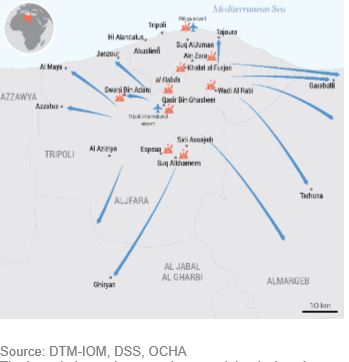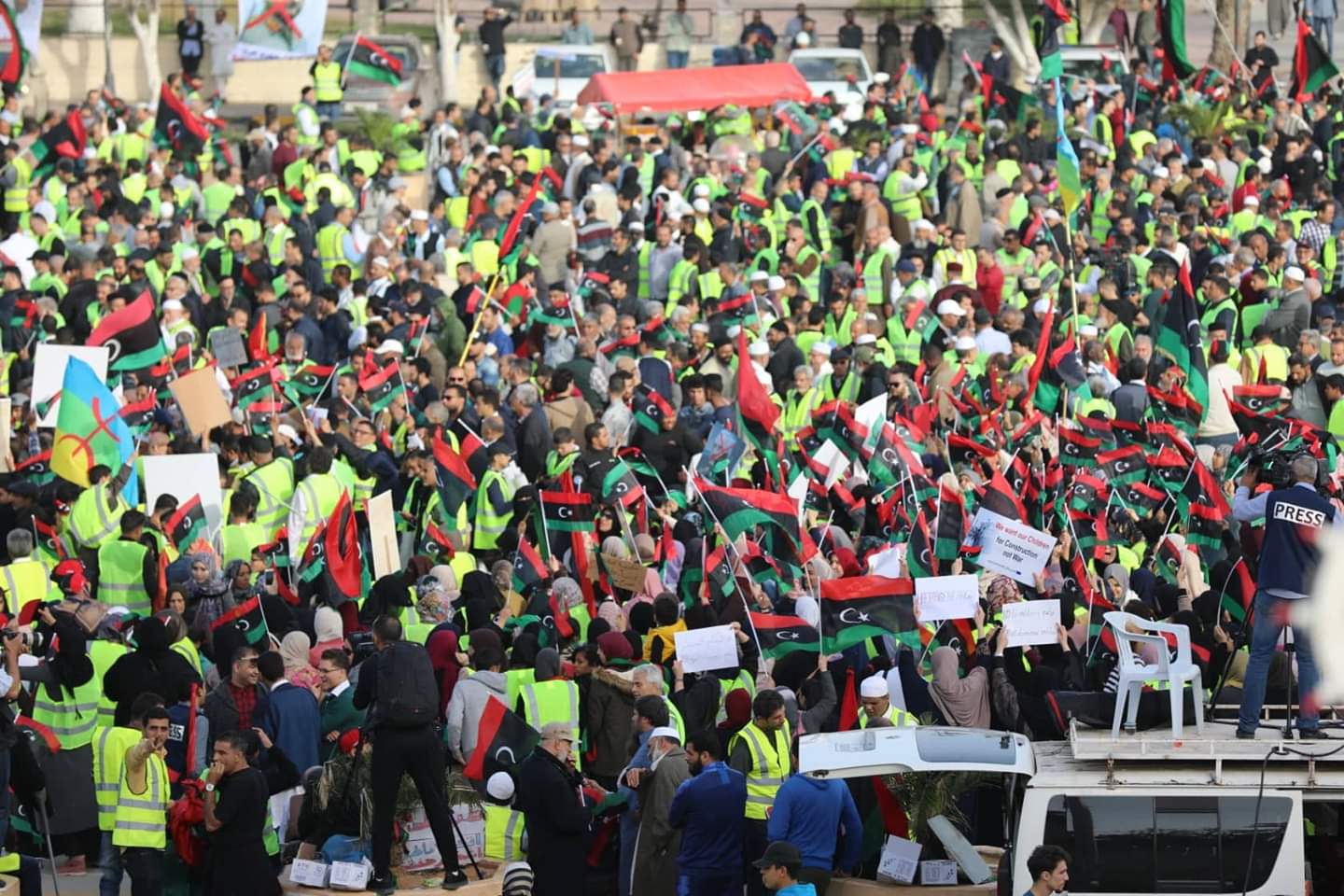By Sami Zaptia.

London, 18 April 2019:
The Tripoli war expanded to the south of Libya today as the Pro Faiez Serraj forces attack and possibly take temporary control of Tamenhint airbase near Sebha. They subsequently made a strategic retreat or lost the base again to the pro-Hafter forces.
The World Health Organization has reported that the death toll in the Tripoli fighting has reached 205 and 913 were wounded. It said its medical specialists have been deployed to support frontline hospitals to perform dozens of surgeries.
The raid on Tamenhint was carried out by the Southern Protection Force who claim they killed members of the Hafter forces and captured ammunition and armoured vehicles.
On the legal front, the Serraj Military Attorney General issued arrest warrants for Khalifa Hafter and 6 other leading LNA commanders citing the air raids on Mitiga airport on 4 April and on the residential areas of Abu Sleem on 16 April. His spokesperson Muhanad Younis said today that now that Hafter is wanted by Libyan justice, the Serraj government is working on getting an International Criminal Court arrest warrant issued.
These arrest warrants comes in response to earlier arrest warrants issued by the pro-Hafter Military Attorney General which included Faiez Serraj and all his remaining Presidency Council.
On the humanitarian side, the Tripoli UN Office for the Coordination of Humanitarian Affairs (OCHA) said civilians continued to be a target of armed conflict, in violation of International Humanitarian Law.
In its latest report, it said that on 16 April, late at night, ‘‘Tripoli witnessed the worst violence recorded against civilians in Libya since 2014. Indiscriminate shelling impacted various densely populated neighbourhoods of Tripoli City, including Abu Sleem, Ghrarat, Suq Al-Jumaa, and Hadbaa.
Indiscriminate shelling killed four people, including women, and wounded some 16 in just one night due to the rockets and shelling in Abu Sleem alone, according to the health sector.
The intensity of shelling this far inside civilian neighbourhoods was unprecedented since the start of clashes in and around Tripoli’’.
The report said that efforts continue with parties to the conflict to secure a two-hour ceasefire to allow evacuation and assistance of civilians trapped due to ongoing hostilities. However, without naming them, the report said not all parties have as yet agreed to a temporary ceasefire.
It said that the displacement of people fleeing the fighting continues to steadily increase, and that following the shelling on 16 April late night, further displacement is expected. Preliminary information, the report added, suggests that people are moving out of Tripoli towards coastal areas, including secondary displacement.
The OCHA report said that over 200 emergency phone calls from individuals, families and larger groups requesting their immediate evacuation have been received by first response teams, of which only four could be attended to due to ongoing hostilities and road blocks.
The proportion of displaced accommodated in collective shelters set up by local authorities continues to be around 10% of the total displaced. Most displaced people are currently staying with family and in private accommodation in neighbourhoods and suburbs in Tripoli. Preliminary information suggests that people are moving out of Tripoli towards coastal areas, including secondary displacement.
In conflict-affected areas, people are facing increasing challenges to access basic essential goods and public services. In Ain Zara, people were unable to buy food in their neighbourhood due to closure of local sources. Significant fuel shortages were also reported. In other areas, such as Abu sleem and Salah Edeen, people lack essential medication, like insulin and hypertension drugs.
Education services were also reported as one of the highest affected public services which was not always available. Health services were highly impacted by the crisis in Ain Zara, mainly due to the prolonged outages of water, electricity and telecommunications networks.
Security concerns and restricted humanitarian access will significantly constrain the ability of humanitarian actors to respond. National and local humanitarian workers have also been affected by the escalation of hostilities, the OCHA report concluded.









